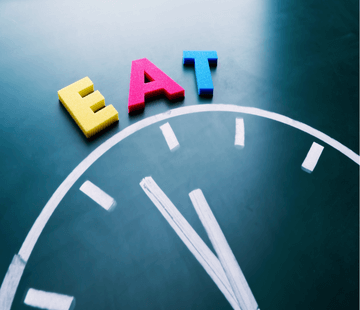
Debunked


When it comes to the 3 square meals VS 6-7 smaller meals a day philosophy, the literature and evidence for both recommendations is quite conflicting. Several studies have been conducted for both sides of the argument and supported them.
If you have a high metabolism and exercise regularly then it’s probably best to eat 6-7 small meals to ensure a steady stream of nutrients to your body. A quick short burst in 3 meals will be counter-productive in this case because it’ll only overload the stomach, which in turn thinks it’s best to store fat for what it won’t use right away. On the other hand if you lead a sedentary lifestyle then eating 3 meals a day helps control your portions and calorie intake. Remember to throw in a snack in between lunch and dinner to ensure dinner isn’t a massive stomach overload.
Personally, I am a stout and firm believer of the 6-7 small meals philosophy. Why? Because as a physician I know that there never is a moment when the stomach lining isn’t secreting digestive juices and acid. Should you deprive the stomach of nutrition for greater than 3 hours, these very juices are what cause acidity. This is also why breakfast is always quipped as the most important meal of the day. Just imagine, 7-8 hours post a night’s sleep and the first thing you do is have a cup of coffee and/or a cigarette. Do you blame that poor stomach for growling and rumbling? Coffee, tea and cigarettes are NOT nutrition (I’ll go into that another day)! You need proper, wholesome food first thing in the morning i.e. oats, fruit, eggs etc. Skipping breakfast and trying to trick your body into thinking it’s eaten with tea & coffee is deadly and almost certainly ensures you’ll binge later in the day grossing your recommended calorie intake.
Primitively, man (and woman), was meant to arise at dawn and retire at dusk. Naturally that isn’t the case today. Whilst we may awake at dawn or soon after, with work and our social lives we only go to bed long after dusk. The average stomach is “awake” for 15 hours. If it’s constantly secreting acid and digestive juices and not getting regular food to act on, it attacks your gut lining causing uncomfortable bloating, belching and heartburn. What do we do instead of feeding it? We drench it in antacids.
Eating 6-7 small meals a day helps rectify this vicious cycle. Feeding the stomach every 2-2.5 hours is a great way to combat the bloating and belching and ensures that you don’t overeat at mealtimes because you’re ravenous from not having eaten for 4+ hours.
So what should you snack on? For those of you whose minds immediately raced to fruit juices, granola bars and energy drinks – STOP! These foods apart from being processed and disgustingly high in sugar and calories offer zero nutrition to your body. When it comes to planning your snacks it is wise to prep the night before. A handful of nuts, 2-3 tablespoons of low-fat yoghurt with a few berries, hummus with veggie sticks, a protein shake, a cup of dairy OR non-dairy milk, an apple with nut butter spread and some 2-3 whole-wheat crackers with peanut butter are some excellent examples of in-between-meals-snacks. These ensure good wholesome nutrition to your body and have an important macronutrient which is essential for fat burning – protein!
Protein is the driver behind fat loss so carefully incorporate protein-rich-foods as your snacks. Frequent eating of the right foods helps stabilize blood sugar levels, optimizes insulin production, promotes fat metabolism and promotes appetite control.
For those just starting out on this kind of eating pattern, I do recommend writing down what you eat so that you can keep a track of your calorie intake. Once you’re used to these portion sizes you’ll feel more confident in assessing what to eat and what not too.
At this point, I must mention HOW to eat. Sounds silly but I promise you it matters how you eat. Avoid eating your snacks at your work desk when your mind isn’t concentrating on what your consuming. This kind of mindless eating is what causes us to eat that giant popcorn portion or wolf down a XL helping of nachos and cheese at the movies. Instead, take 5-10 off, sit back in your chair and relax and use your senses to take in your food. Savor every bite, feast your eyes on the colors of your snack, let yourself inhale the flavorful scent of what you’re about to bite into and allow your taste buds to differentiate the textures of the mini-meal.
Why this odd romancing? Because only such kind of sensory eating ensures your brain is sent the right signals that you’ve eaten and allows you to feel full and satiated. Did you know that even then, it’ll take your brain about 20 minutes to register when it’s satiated? After learning this fact, mindless eating sounds almost dangerous, doesn’t it?
There really isn’t a correct eating pattern to follow and so it’s best to opt for the feeding frequency that suits your lifestyle. The key is to be consistent in your ways because irregular eating patterns may negatively alter metabolic function. Also, remember that calories contribute to weight gain/loss.

Juggling many roles from physician to writer to pilates instructor to Marketing-PR executive, Dr. Daamini is constantly pushed and inspired to get creative on how to encompass a Retreat into her daily life.
View Profile